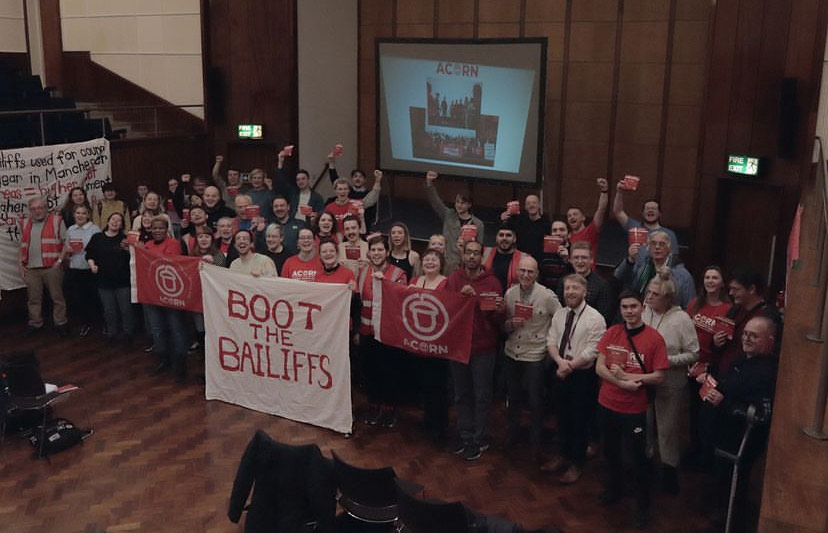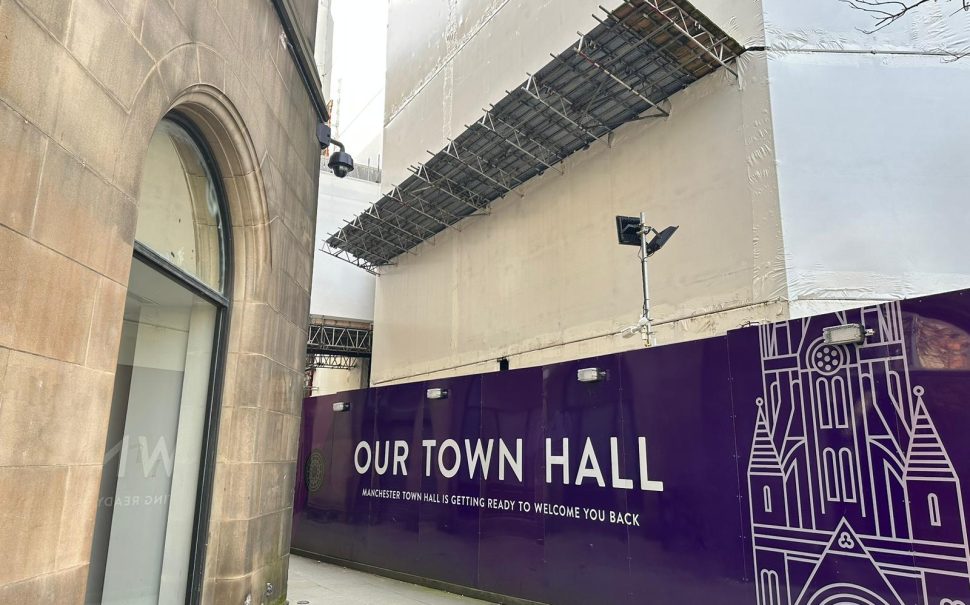Manchester City Council voted to stop sending bailiffs to households receiving council tax support.
Campaigners have celebrated the news as it means protecting around 50,000 vulnerable households from bailiffs.
Previously bailiffs could legally claim the property of residents if their council tax payments were late, even if the council were aware of and supporting them with their financial difficulties.
Councillors also voted in favour of extending the maximum Council Tax Support for poorer working-age residents from 82.5% to 85%.
These were two of the demands of the Boot the Bailiff campaign.
The campaign was launched by ACORN, a community and tenants’ union, and picked up momentum in the summer.

There is evidence to support their claims that bailiffs both have a harmful impact on individuals and allow for large profiteering off of vulnerable people.
Citizens Advice estimates that over 3.5 million people are behind on council tax payments, and campaign group Debt Justice estimates that bailiff use adds an average £310 additional debt to those already struggling.
This can be reflected in the profits’ of private bailiff companies.
For example, the Newlyn group, used by councils to recover council tax and traffic fines, saw its debt collection increase 43.8% in the year up to December 2022.
Newlyn Group, which is hired by councils to recover unpaid traffic fines and council tax, saw its turnover from debt collection increase by 43.8% to £25.8m in the year to December 2022, while its gross profit rose to £15.5m.
Another bailiff company, Marston Holdings, saw the number of cases it was dealing with rise to 1.72 million, making £23.1m profit in the process.
The campaign also alleged about the aggressive and intimidating bailiffs that Manchester City Council funding has been used on.
They also pointed out that Hammersmith and Fulham councils have increased council tax collection whilst ending bailiff use.
Richard Dunbar, Senior Community Organiser at the non profit organisation/campaign group Debt Justice, said: “These positive changes have been introduced because an ambitious community campaign challenged the council to support residents weighed down by debt rather than rushing to call in the bailiffs.”
A Manchester City Council spokesperson said: “We have undertaken a thorough feasibility study into stopping the use of enforcement agents to collect unpaid Council Tax – and to ensure the process is fair, proportionate and that we protect vulnerable people.”
However, the council has not committed to extending the scheme to households who haven’t reached out to them.
The spokesperson said: “Council Tax helps to pay for the city’s essential services and represents 30% of the Council’s annual budget; Local Authorities are therefore obliged to attempt to recover unpaid bills.
“As such, we feel that the use of enforcement agents in appropriate situations where residents have not engaged with the Council remains a proportionate approach.”
An amendment suggested by Debt Justice to expand this out to anyone who is entitled to Council Tax support – whether or not they actually claim it – is being investigated by the council.
The council has also committed to improving letters for residents in association with Citizens’ Advice Bureau, Debt Justice and ACORN.
“We would urge anyone who is struggling to pay their Council Tax to get in touch with us at the earliest opportunity – and fully engage with our teams who can offer advice and support, including writing off costs in some circumstances and payment pauses, as well as not referring people to enforcement if they are in receipt of Council Tax Support.”




